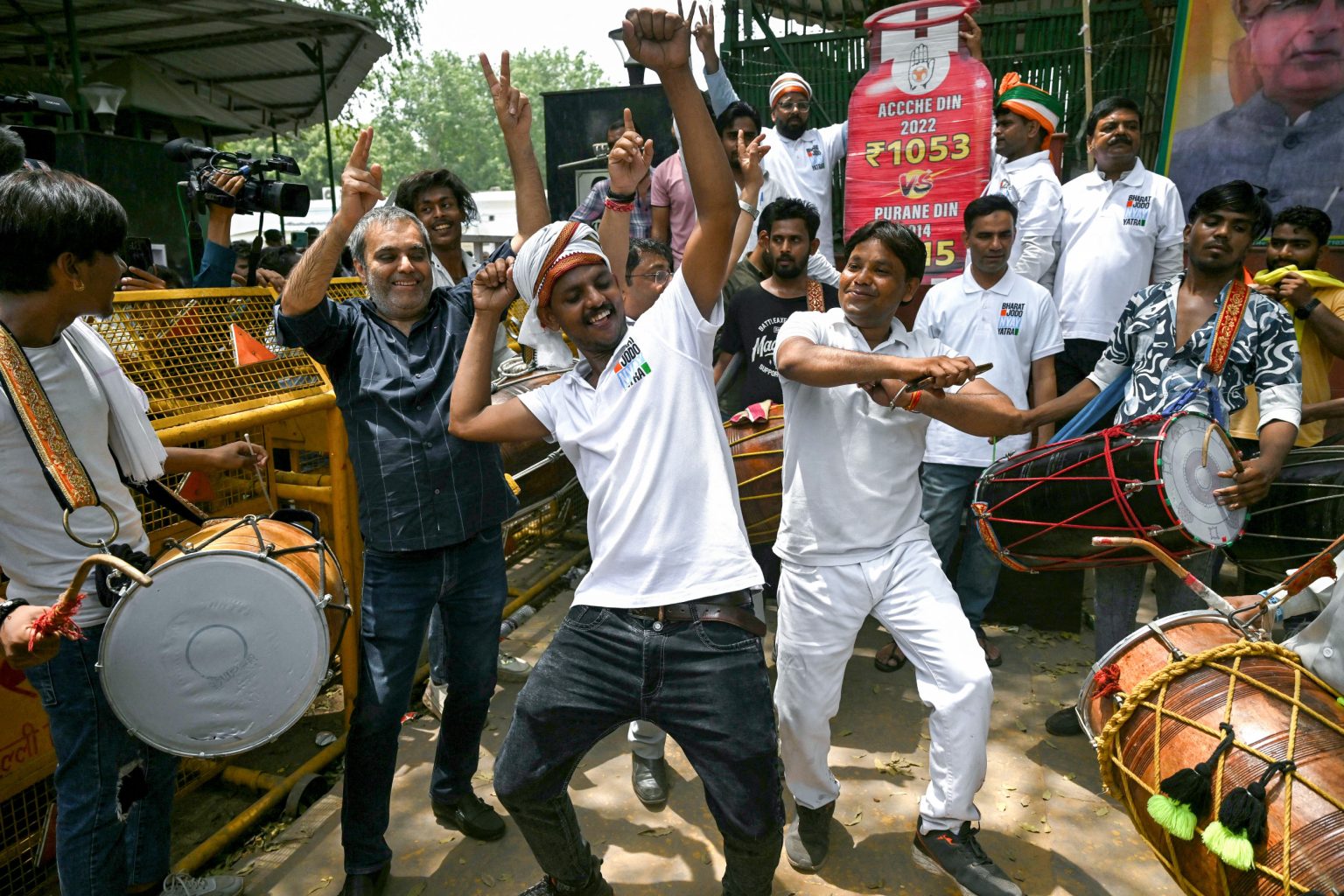The 2024 general elections in India have resulted in an unexpected setback for Prime Minister Narendra Modi’s Bharatiya Janata Party (BJP), with early results showing a significant loss of seats for the party. The Indian National Congress (INC) and its allies have made substantial gains, leading to jubilant celebrations by opposition parties. While the BJP is still likely to emerge as the biggest party in the lower house of parliament, they may not achieve a full majority and will likely need the support of partners in a National Democratic Alliance (NDA) to remain in power.
Despite initial predictions of a landslide victory for the BJP, the scale of their losses has surprised many political analysts. Prime Minister Modi had expressed confidence in his government’s performance and popular support leading up to the elections but the results have shown a different outcome. The opposition’s strategy of focusing on local issues, unity, and justice appears to have resonated with voters, leading to the unexpected results.
Rahul Gandhi, a prominent figure in the Indian National Congress party, emphasized that the election was not just a fight against the BJP but also against institutions and structures dominated by Modi and his confidants. The opposition’s narrative of saving the Constitution and addressing social issues seems to have struck a chord with voters. The impact of the election results on the Indian stock market has been closely watched, with initial volatility expected to settle once a stable government is formed.
Within the ruling party, there is heated debate over who should take the blame for the BJP’s poorer than expected performance. Some point to specific leaders for allowing candidates who discredited the party’s legacy, while others attribute the setback to factionalism within the party. The future direction of the Indian government and its policies will depend on how the new government is formed and its ability to address key issues such as economic disparity, job creation, and governance practices.
Overall, the 2024 general elections in India have brought about a significant shift in the political landscape, with the unexpected results challenging conventional wisdom and highlighting the resilience of Indian democracy. The outcome of the elections will have far-reaching implications for the country’s governance, economic stability, and social justice issues. Despite the setbacks faced by the ruling party, the Indian political scene remains dynamic and open to change, reflecting the diverse voices and opinions of the country’s citizens.


